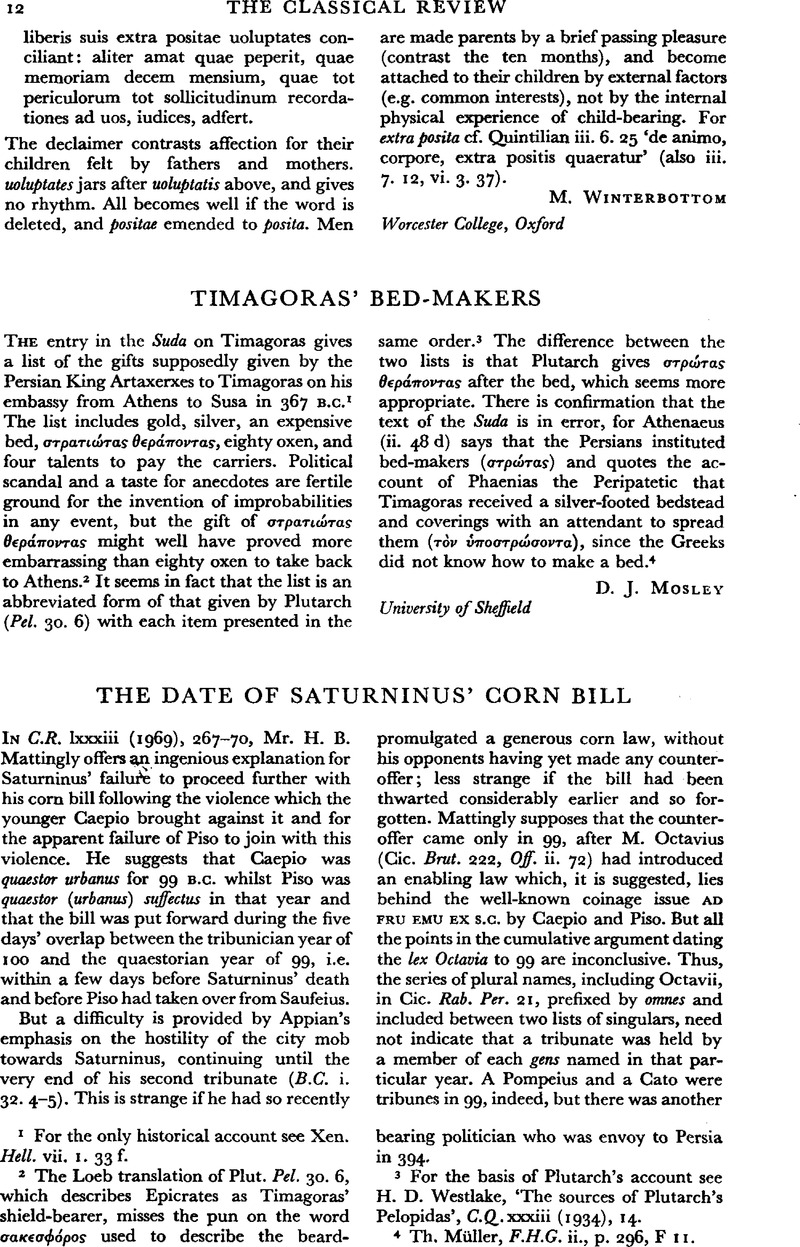Article contents
The Date of Saturninus' Corn Bill
Published online by Cambridge University Press: 27 February 2009
Abstract

- Type
- Review Article
- Information
- Copyright
- Copyright © The Classical Association 1972
References
page 12 note 1 For the only historical account see Xen. Hell. vii. 1. 33 f.
page 12 note 2 The Loeb translation of Plut. Pel. 30. 6, which describes Epicrates as Timagoras' shield-bearer, misses the pun on the word σακεσφ⋯ρος used to describe the beard-bearing politician who was envoy to Persia in 394.
page 12 note 3 For the basis of Plutarch's account see H. D. Westlake, ‘The sources of Plutarch's Pelopidas’, C.Q.xxxiii (1934), 14.
page 12 note 4 Th. Müller, F.H.G. ii., p. 296, F 11.
page 13 note 1 Badian, op. cit. 35, in fact suggested that it may have been the younger Caepio's turbulence ‘earlier in 103’ which sealed his father's fate.
- 1
- Cited by


